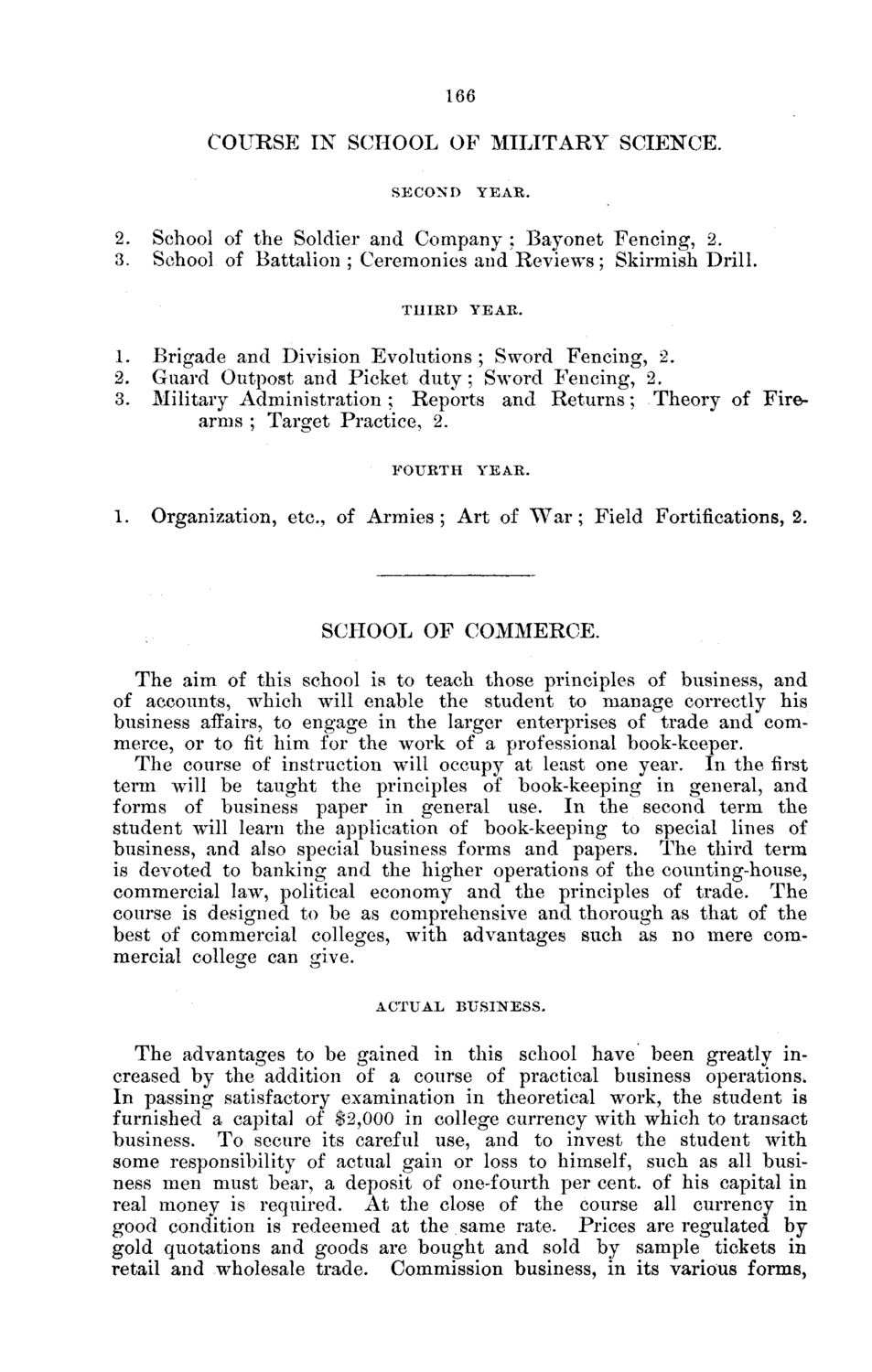| |
| |
Caption: Board of Trustees Minutes - 1878
This is a reduced-resolution page image for fast online browsing.

EXTRACTED TEXT FROM PAGE:
166 C O U R S E I X SCHOOL O F M I L I T A R Y SCIENCE. SECOND YEAR. 2. 3. School of the Soldier and Company ; Bayonet Fencing, 2. School of Battalion ; Ceremonies and Reviews ; Skirmish Drill. THIRD YEAR. 1. 2. 3. Brigade and Division Evolutions ; Sword Fencing, 2. Guard Outpost and Picket duty ; Sword Fencing, 2. Military Administration; Reports and R e t u r n s ; Theory of Firearms ; Target Practice, 2. FOURTH YEAR. 1. Organization, etc., of A r m i e s ; Art of W a r ; Field Fortifications, 2. SCHOOL O F COMMERCE. The aim of this school is to teach those principles of business, and of accounts, which will enable the student to manage correctly his business affairs, to engage in the larger enterprises of trade and commerce, or to fit him for the w^ork of a professional book-keeper. The course of instruction will occupy at least one year. In the first term will be taught the principles of book-keeping in general, and forms of business paper in general use. In the second term the student will learn the application of book-keeping to special lines of business, and also special business forms and papers. The third term is devoted to banking and the higher operations of the counting-house, commercial law^, political economy and the principles of trade. T h e course is designed to be as comprehensive and thorough as that of the best of commercial colleges, with advantages such as no mere commercial college can give. ACTUAL B U S I N E S S . The advantages to be gained in this school have been greatly increased by the addition of a course of practical business operations. In passing satisfactory examination in theoretical work, the student is furnished a capital of $2,000 in college currency with which to transact business. To secure its careful use, and to invest the student with some responsibility of actual gain or loss to himself, such as all business men must bear, a deposit of one-fourth per cent, of his capital in real money is required. A t the close of the course all currency in good condition is redeemed at the same rate. Prices are regulated b y gold quotations and goods are bought and sold by sample tickets in retail and wholesale trade. Commission business, in its various forms,
| |